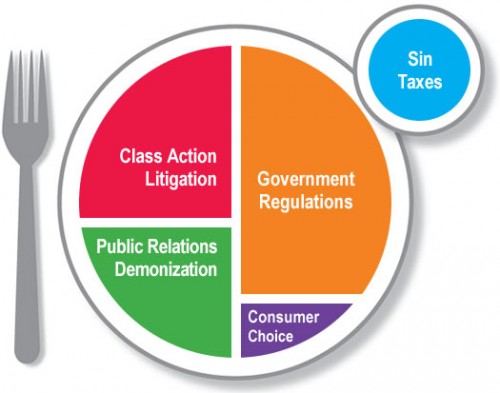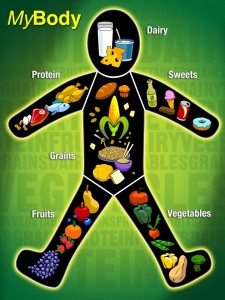The Washington Legal Foundation (WLF) placed an ad in yesterday’s New York Times.
The Real Nutritional Guidelines
The ad continues:
Paternalistic plaintiffs’ lawyers, government officials, and professional activists are pecking away at consumers’ freedom of choice. They think we can’t manage our own lives, and through lawsuits, regulations, and taxes, they want to make our food choices for us—while profiting handsomely in the process. If we let these New Prohibitionists eat off our plates today, what other personal freedoms will they target tomorrow?
The website lists cigarette companies as clients:
The Washington Legal Foundation advocates for a free market economy, a common sense legal system, a transparent and accountable government, and a strong national defense. Our legal team shapes legal policy through aggressive litigation and advocacy at all levels of the judiciary and the policy-making arena.
Aggressive? Clearly.
I’m not familiar with this group. Could it possibly be connected to the Center for Consumer Freedom?
If you know anything about the WLF, do tell.
Addition, October 19: Thanks to readers for the enlightening comments. One sent this document, in which WLF explains its mission.
If consumer protection were the real goal [of consumer advocates], then special interest ideologues would applaud businesses’ vigorous self-regulation of their advertising, and advocate viable, non-censorship solutions such as increased enforcement of underage drinking laws and more education on healthy food.
Instead of dumbing down America through activism, why not focus our efforts on real problems we face and produce drugs and vaccines to deal with pandemics, bioterrorism, and cancer. These are critical challenges that make the radical causes of self-anointed consumer advocates look petty and hopelessly irrelevant.
Reversing childhood obesity is a radical cause? I’m for it!




